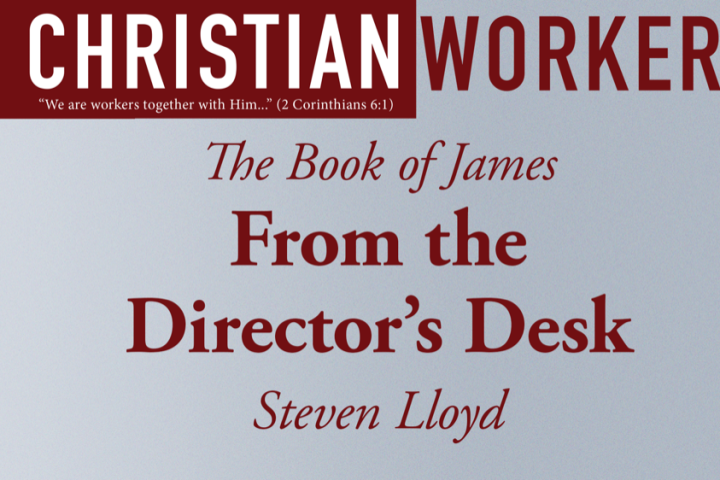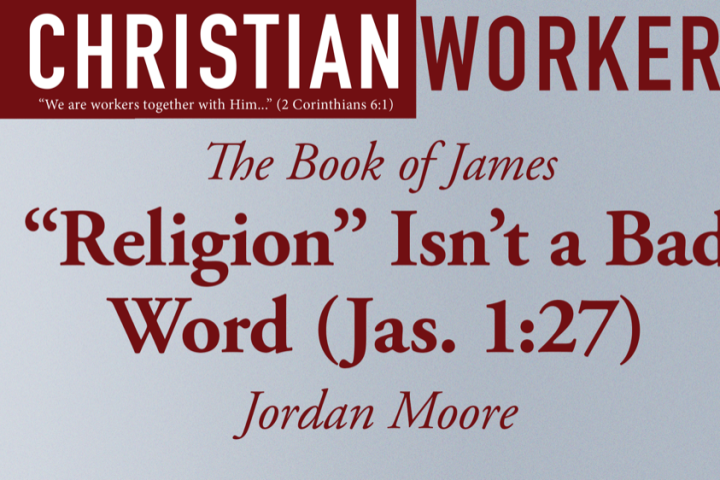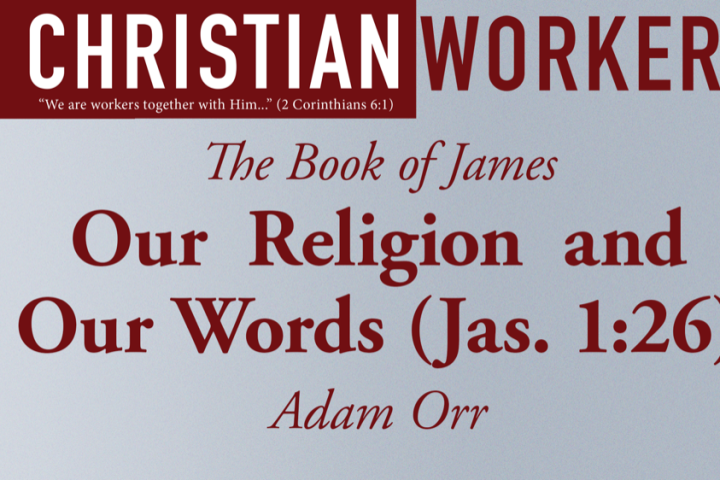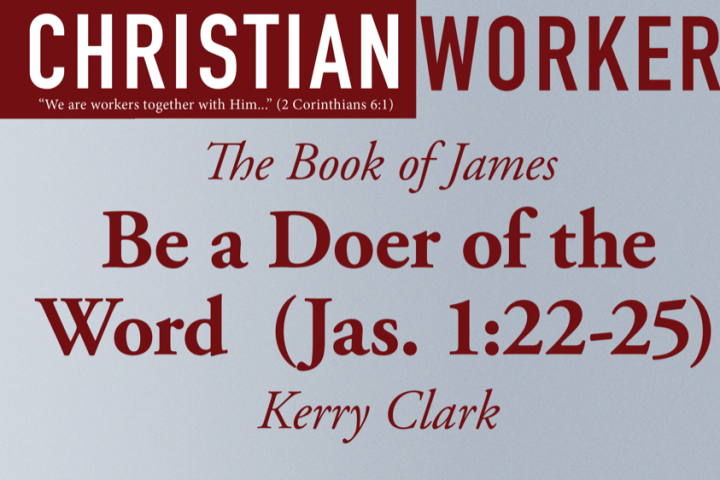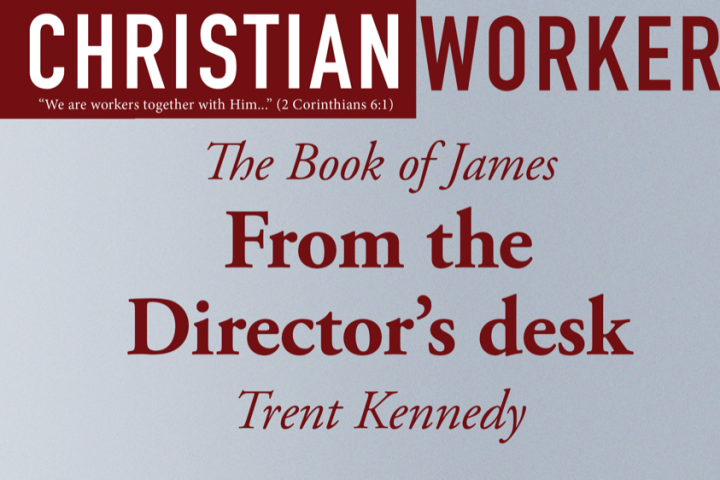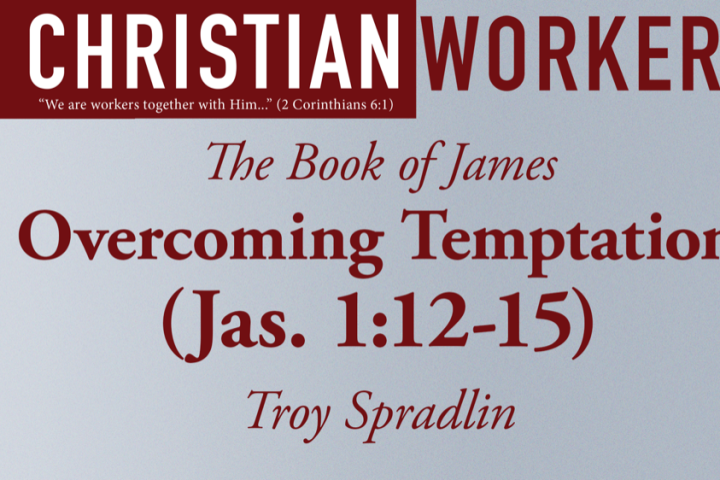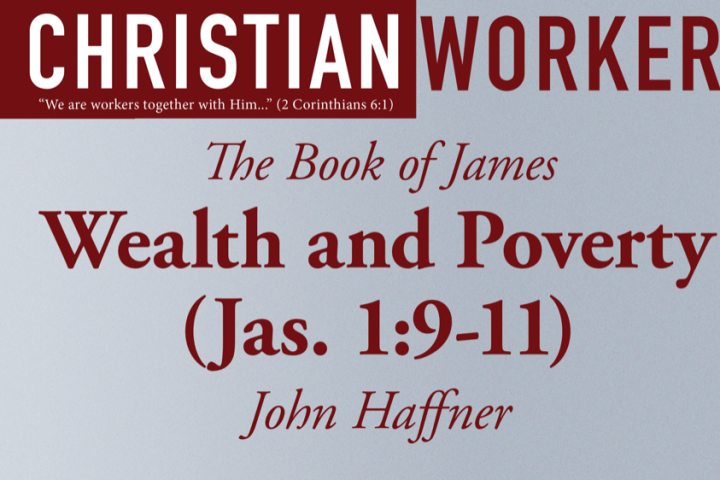Posts by Christian Worker (Page 2)
Gospel Parallels: Law and Grace – Dave Rogers
Many years ago I attended an area-wide meeting of preachers where a brother presented his beliefs about law and grace. He contended that God’s law and His grace effectively cancel out one another; that we can be subject to law or grace, but not both. This is a common doctrine in protestantism, with deep roots in John Calvin’s assertion that God’s grace is “irresistible” (that is, God chooses who receives His grace, and no person can “do” anything to affect…
Faith without Works is Dead (Jas. 2:14-16) – Bill Burk
The word “belief” or “faith” serves as a synecdoche; each stands as a part of the whole. “I believe in Jesus,” when said genuinely, is the most essential claim a person can ever make. To say that one is saved by faith means that at some point, he obeyed the gospel (Rom. 10:16; 2 Thess. 1:6-10; 1 Pet. 4:17). Having heard it (Rom. 10:17), he believed it (Rom. 1:16), repented of sin (Luke 13:3; Acts 17:30), and was baptized into…
The Problem With Prejudice (Jas. 2:1-7) – Neal Pollard
When one continues reading James’ letter and comes to what we know as chapter two, he is confronted with three key words of the letter–brethren, faith, and judgment. The judgment words may be more subtle, depending on translation. In the NASB 95, one finds “made distinctions” (4), “judges” (4), and “court” (6). All are forms of κρινω (KRINO), meaning to pass judgment upon someone or something. That, by very definition, strikes at the heart of what prejudice involves. Some form…
From the Director’s Desk (March 2025) – Steven Lloyd
The school is doing well. Our students, overall, are doing well. It is hard to believe we are at the close of our third quarter, entering the final quarter of the school year, and graduating students at the end of June. The incoming first year class is shaping up well with twelve students already approved and raising support. Three women will be among them, and a brother from Mexico is making every effort to be here as well. Most of…
“Religion” Isn’t a Bad Word (Jas. 1:27) – Jordan Moore
“Give me Jesus, but not religion.” This popular refrain is pervasive in the denominational world, and increasingly in churches of Christ. A Sister once rebuked me after a sermon for saying that Christianity is the one true religion (John 14:6). She alleged, “Christianity isn’t a religion, but a relationship.” Sadly, she 1) misunderstood the biblical term, “religion” and 2) overlooked or never read James 1:27. Let’s consider it… “Religion…” Some think it is, but “religion” isn’t a bad word. As…
Our Religion and Our Words (Jas. 1:26) – Adam Orr
Is it possible to have religion that is worthless in the eyes of God? Surely, He would be pleased with someone the world viewed as ‘good, moral, and religious,’ wouldn’t He? The answer plainly given in James 1:26 is that it is entirely possible to have a religion that displeases God. The Bible says in this verse, “If anyone thinks he is religious and does not bridle his tongue but deceives his heart, this person’s religion is worthless.” Here are…
Be a Doer of the Word (Jas. 1:22-25) – Kerry Clark
In James Chapter One, James gives us several imperatives – be swift to hear, slow to speak, and slow to anger (v. 19); he also gives another imperative in verse twenty-two, “be ye doers of the word, and not hearers only.” In every English translation I considered, the word “doer” seemed to be the unanimous consensus of the translators. The word in the Greek is remarkably interesting, it is the word from which our English word “poet” comes from. In…
Hear The Word (Jas. 1:9-20) – Ronnie Scherffius
The book of James is one of the most practical books of the New Testament. Though he does treat such profound matters as the perfection of faith by works (2:14-26), James especially addresses practical matters of the faith. Topics such as enduring trials (1:1-6), living the Christian life without partiality (2:1-13), and controlling the tongue (3:1-10) are a few examples. The practical nature of James is also demonstrated in its similarities to the wisdom literature of the Old Testament, particularly…
From the Director’s Desk (February 2025) – Trent Kennedy
Music in the worship of the New Testament church is integral, beautiful, and unifying. When Christians join together as a congregation to sing words of praise and admonition with only our hearts and voices, God is glorified, and His people are greatly encouraged (cf. Eph. 5:19; Col. 3:16). In order for our assemblies to unite in song, there should be a song leader (cf. 1 Cor. 14:26). Good song leaders make for great song services. When I was a student…
The Greatest Giver (Jas. 1:16-18) – Ross Haffner
I have been blessed to receive many wonderful gifts from friends and family members. But sometimes the gifts we receive are not useful, good for us, or right for us at the moment, though perhaps it once was. The Hebrews writer made an interesting connection between God and our human fathers when he wrote, “God deals with you as with sons; for what son is there whom a father does not chasten?” (Heb. 12:7). In Luke 11:11 Jesus asked, “If…
Overcoming Temptation (Jas. 1:12-15) – Troy Spradlin
An important practice for lion tamers is to train big cats without relying solely on food. Overusing treats can create a dangerous expectation, as the lion may anticipate food at all times. Eliminating such temptation for the lion reduces the possibility of serious consequences, such as the lion tamer getting himself killed! This illustration highlights a valuable spiritual lesson for Christians. If we remove temptation in our own lives, it can help us avoid the consequences that often follow. Temptation…
Wealth and Poverty (Jas. 1:9-11) – John Haffner
In the wisdom literature of the Old Testament, Agur the son of Jakeh said, “Give me neither poverty nor riches” (Pro. 30:8). The various sufferings that accompany the poor are obvious, but what’s the danger of being wealthy? It seems Agur understood man’s tendency to turn blessings into a curse. Too many have seen the generosity of God in their life but have attributed it to their own genius and strength. Forgetting their Creator, they choose to place their trust…



